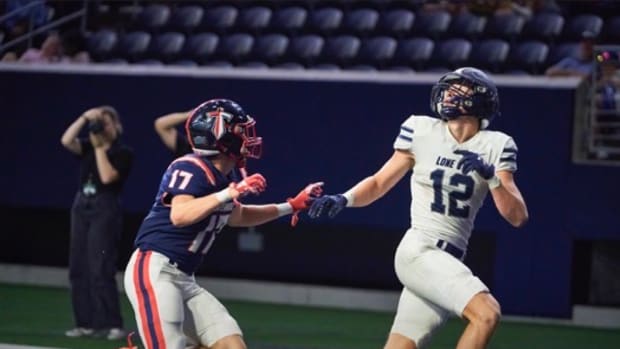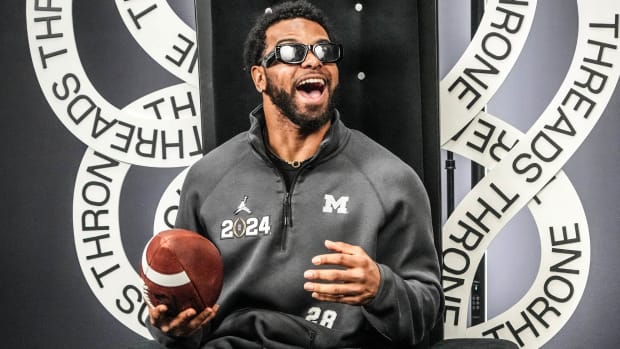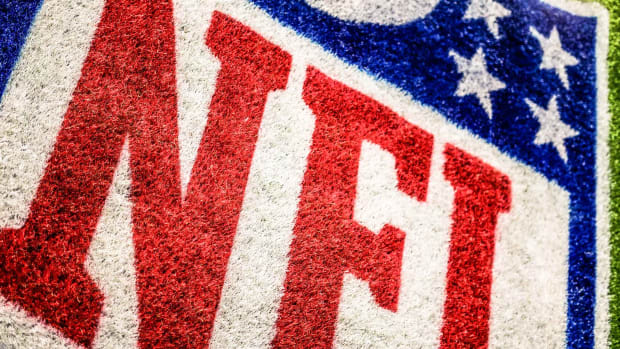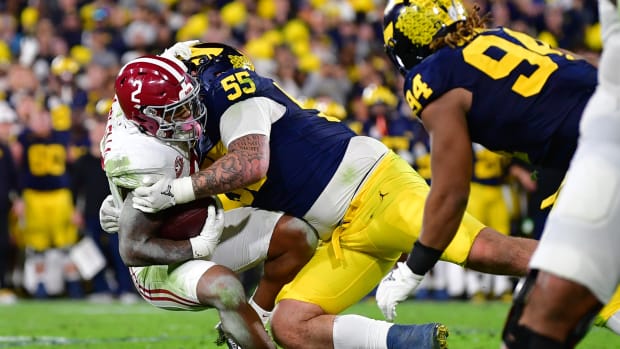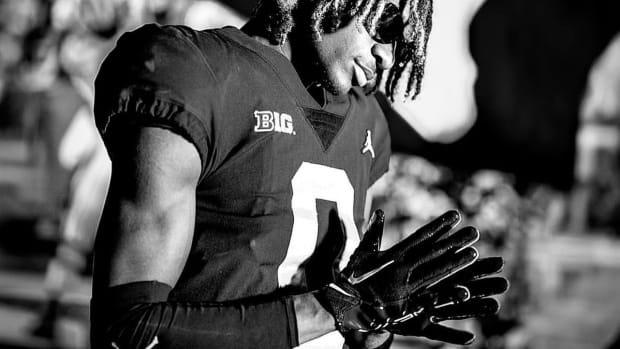Three Things To Watch When Michigan Hosts Rival MSU
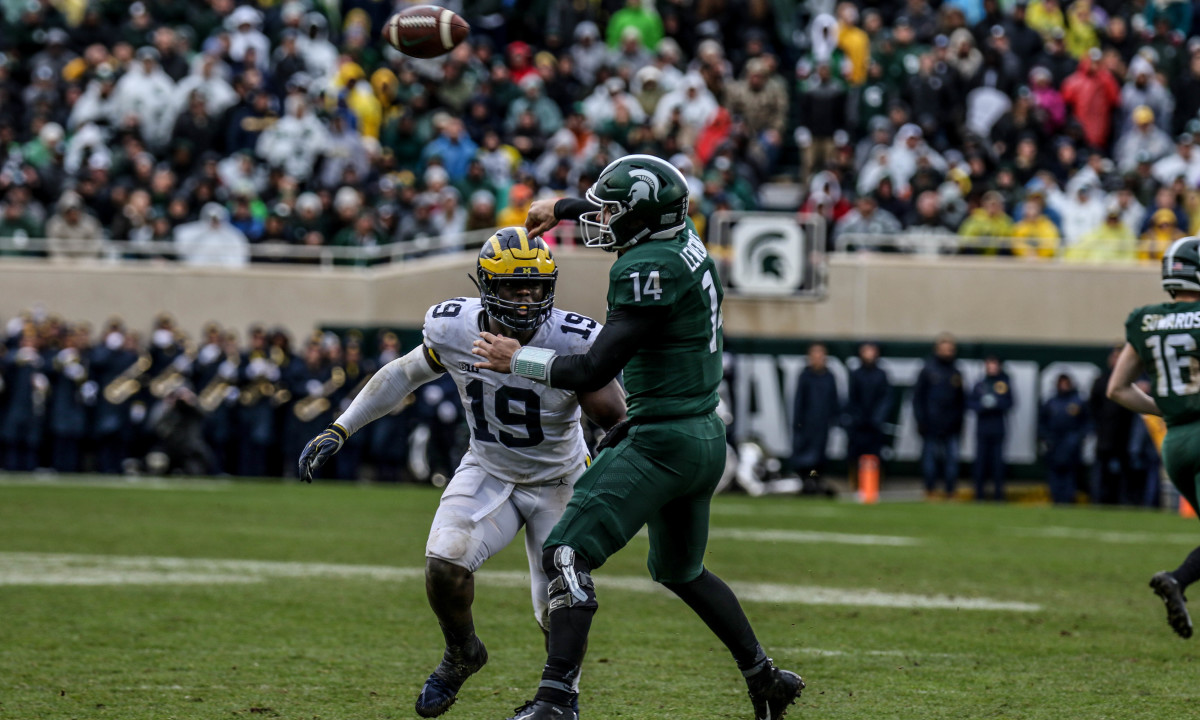
Dueling QBs (or maybe not): When Michigan tripped to Maryland two weeks ago, the Terrapins were determined not to let U-M beat them with a running game that overwhelmed Notre Dame Oct. 26 (303 yards rushing).
UMD loaded up the box and dared QB Shea Patterson and the Michigan passing attack to make the game's big plays. At the half, it appeared their strategy was working - the Wolverines had just 47 yards rushing on 14 carries and Patterson had only 113 yards passing.
Michigan, though, got a special teams touchdown to start the game and then started a touchdown drive on Maryland's 41-yard line, working with a short field. Patterson did complete a 51-yard pass to junior Nico Collins to set up the Maize and Blue's third score, so even though UMD had limited the rushing and passing games, the Wolverines were up 21-0.
In the third quarter, Michigan broke through with 96 yards rushing on 13 carries, outscored Maryland 14-7 and the game was over.
Boasting one of the nation's best rush defenses (16th, 108.1 yards allowed per game), Michigan State will certainly repeat Maryland's game plan, feeling that if it can stop U-M's run, it puts the Maize and Blue in an uncomfortable position, where Patterson has to win it with his arm.
With the exception of the second half at Penn State, he hasn't shown an ability to do so, struggling as a passer against Army, Wisconsin and Iowa when those teams took away the run: Patterson had passer ratings of 125.48, 115.62 and 93.65, respectively, in those three (in college football 135.0 is considered "average").
On the flip side, Michigan, which ranks 21st nationally allowing 112.7 yards rushing per game, is trending strongly against the run, yielding just 64.7 yards on the ground over its last six contests and 1.87 yards per attempt.
Even with Spartan redshirt freshman Elijah Collins peaking as a runner (a career-high 170 yards last week), Michigan should be able to limit the effectiveness of MSU's rushing attack, putting the Green and White in the same position as the Wolverines - forcing QB Brian Lewerke and his depleted corps of wide receivers and tight ends (leading WR Darrell Stewart is out as is top tight end Matt Dotson) to win the game with the pass.
With all that in mind, maybe, just maybe, this won't be a QB duel. Why?
In losses to Ohio State and Wisconsin that Michigan State rushing defense wasn't so stout, ceding 323 yards and 6.59 yards per carry to the Buckeyes, and then 222 yards and 4.83 yards per carry to the Badgers. Those two teams threw for just 386 combined yards (though a very efficient 386, completing 76.1% of their passes and 8.4 yards per attempt).
Can Michigan replicate OSU and Wisconsin's success on the ground, thus voiding the need for Patterson to be the biggest difference-maker? Or will the rush defenses prevail, putting this one on Patterson and Lewerke?
Early Momentum: We've spent a lot of time this season talking about first-quarter play, largely how it relates to the Wolverines' performance against ranked teams on the road. In tomorrow's game, the first 15 minutes will also likely dictate how the rest of the game goes.
Get up on Michigan State early and the Spartans' cracks might widen, leading to a relatively easy win.
Give the Green and White some confidence with a tight first quarter, and the game may stay that way throughout.
Over the last four years, getting out to an early lead hasn't meant much, save 2017 when U-M trailed 7-3 after one and 14-3 at the half, and saw the skies open up in the second frame. But in 2015, the rivals were scoreless after one and Michigan led 10-7 at the half but ultimately lost on the game's final play.
In 2016, in a Michigan rout, it was tied 7-7 after one quarter. In 2018, a 21-7 Maize and Blue victory, it was 0-0 after 15 minutes of play.
So maybe early momentum will mean nothing in the end result, but with MSU riding a four-game losing streak, on the heels of a collapse to Illinois, on the road, a team having nothing to play for but pride ... an early deficit could push Michigan State over the edge, paving the way for a blowout Michigan win.
New Bully On The Block: At our weekly Football 101 events Tuesdays at Wolverine Brewing Co. and Good Time Charley's, former Michigan QB Devin Gardner jokingly talks about his career and the way he was brutalized by a MSU pass rush that sacked him nine times in two seasons (2013-14).
With Pat Narduzzi as defensive coordinator, the Spartans unleashed hell on any opposing quarterback, sending five, six and sometimes even seven defenders on run- and pass-blitzes almost every down. During Narduzzi's heyday, and with Brady Hoke at the helm for U-M, the Wolverines were sacked 16 times compared to only three QB takedowns by Michigan from 2011-14.
Since the arrival of Jim Harbaugh in 2015, the two teams have been even on the sack numbers - nine apiece - while the Maize and Blue had a 4-2 advantage a year ago in its 21-7 victory.
Michigan currently sits 13th nationally in averaging 3.22 sacks per game while the Green and White are 26th nationally with 2.78 QB takedowns per contest. Among sack rushers, MSU senior defensive end Kenny Willekes is the most accomplished of the two teams, with 21 sacks in his career. However, with U-M featuring five players with 3.5 sacks or more, the Wolverines have threats in their entire front seven.
For years, Michigan State tormented Michigan quarterbacks, Gardner most prominently, but the tide has been turning. A year ago, the Wolverines harassed Lewerke into a 5-for-25 performance and while no one should expect U-M to do that again, Don Brown's unit is poised to be the big bully on the block tomorrow, and for the foreseeable future.

